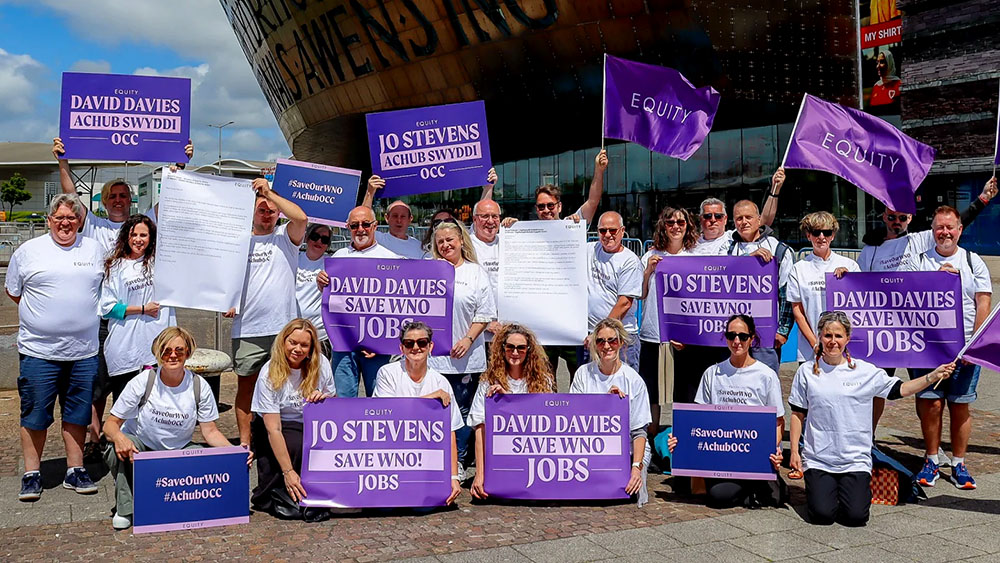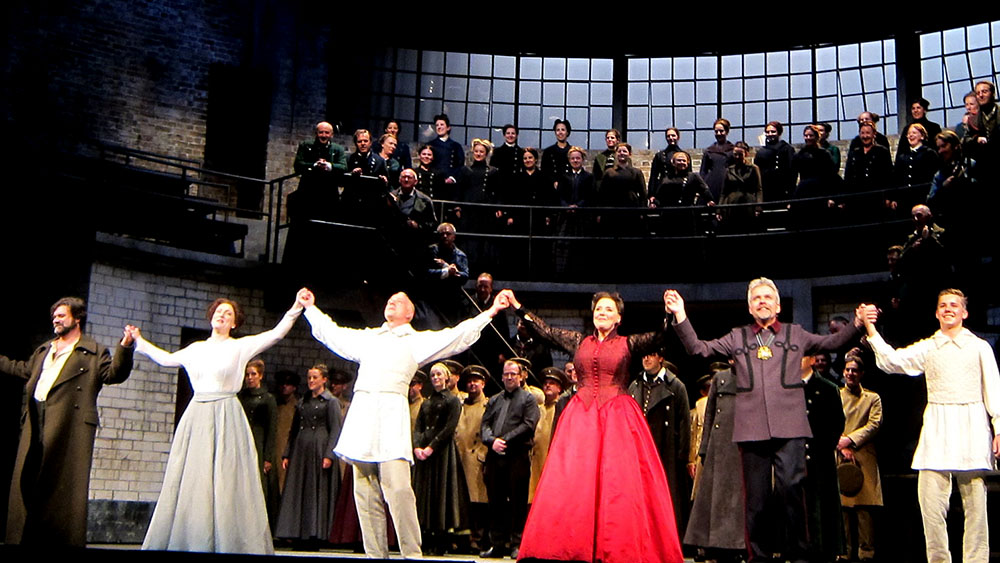Opera management’s plan to lay off one-third chorus members and reduce pay by 15% is facing stiff resistance from singers.

A third of the chorus singers in the Welsh National Opera (WNO) are expected to lose their jobs as funding cuts batter the 80-year-old institution.
The 30-strong chorus has taken industrial action and threatened to go on strike against proposals to reduce their number, cut their pay by 15% and fewer contracted hours.
“I am a mother of three, living a very basic lifestyle. These cuts will put me just above minimum wage and this is unsustainable for me and my children,” said soprano Claire Hampton who is also a workplace representative for trade union Equity. “With few opportunities here in Wales to transfer my skill set it could force me out of my home and possibly out of the sector.”
In 2022, the Arts Council of England (ACE) slashed WNO’s funding by 35% while the money allocated by Arts Council of Wales (ACW) for the year 2024-2025 was nearly 12% less than what the opera demanded.
The cuts have led to the WNO dropping its shows in Bristol and Llandudno.

The chorus members had planned the strike on November 15, but the action was postponed as talks between the union and the WNO management are ongoing.
Equity told InterCardiff that it is demanding a full-time chorus, on a full-time industry standard salary and no compulsory redundancies.
Simon Curtis, Equity’s national and regional official for Wales and Southwest England, stressed that strategic reviews of WNO have always concluded that maintaining a full-time chorus and orchestra is central to sustaining WNO’s quality and contribution to the artistic landscape.
“Rather than the future of opera in Wales being one of low paid jobs and precarious shorter fixed-term contracts, we needed there to be a recognition of the industry’s wider positive impacts,” Curtis said. “The performing arts and entertainment industry fosters local economic development, social inclusion, education and skills, tourism, physical and mental wellbeing, and strengthens the global reputation of our country,” he added.

WNO management acknowledged that preserving a full-time chorus is essential for Wales’ national opera company. However, it said the funding cuts from the ACE and ACW leave no choice but to make changes to ensure the opera remains financially sustainable.
‘We are planning to implement a new delivery model from our 2025/2026 season to maintain our activity and impact on and off stage while ensuring we operate as efficiently as possible within the resources available. The scale of the cuts has meant taking further steps to make savings,” said a spokesperson for WNO.
